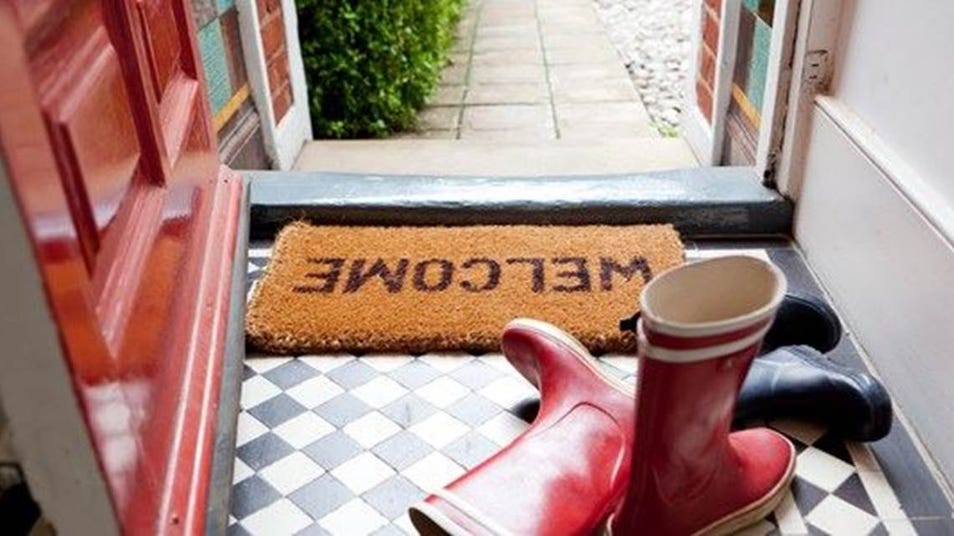HOW TO KEEP SPIDERS AWAY
Learn how to keep spiders away from your home with ways and techniques you can use to repel the eight-legged creatures if they dare to venture too close.

A fly buzzing around your home can be disconcerting, putting us immediately on edge as we try to capture the culprit. Flies can also be responsible for the spread of bacteria both inside and outside the home, with some flies prone to biting humans, leaving painful welts on your skin. With all this considered, it’s clear that learning how to keep flies out of the house and away from your home is a valuable skill to have. We’ve got a few tips to help you do just that.
What attracts flies?
Australia plays reluctant host to three common types of flies: the housefly, the bushfly and the blowfly. If you’re a keen gardener or have fruit trees outside, you may also find fruit flies and vinegar flies flitting around your trees and plants. You may also find black flies making an appearance after severe weather such as a flood or storm.
Whichever the type of fly that you encounter most regularly, there are some basic steps you can take to prevent attracting flies to your property. So, what attracts flies to our homes, gardens and yards? Some of the key things that could draw them in include:
Easy access to food: Flies are mostly attracted to rotting food and food scraps, so make sure to wrap food waste tightly and ensure your bins have tightly-fitted lids, are kept closed at all times and emptied regularly. Make sure to clean the inside and outside of your bin on a regular basis as well.
Unloved gardens: If you have a fly problem inside the home, the answer may actually be outside – in your unloved garden. Make sure you regularly remove unwanted fruit and vegetables as leaving them on the tree to ripen and rot could attract fruit flies and vinegar flies. You’ll also need to remove fallen produce from the ground and, if possible, harvest produce early if they’ll continue to ripen after it’s picked.
Open septic tanks and drains: Make sure that drains and septic tanks are covered with sealed lids and kept undamaged. You may also want to inspect them for fly larvae on a regular basis and seek to repair the point of entry should fly larvae be located. You’ll also need to make sure your toilet is kept clean and fully functional, including inspecting toilet vent pipes for any gaps where flies might squeeze through.
Lawn clippings and other discarded vegetation: Clear away the unneeded remnants of your garden in tightly closed bin bags.
Animal faeces: Make sure to clear up after your pet immediately as well as inspect your garden on a daily basis for any faeces left by wildlife.
Once you’ve taken care of the above factors, it might also help to make use of an effective outdoor repellent like the Mortein NaturGard Multi-Insect Automatic Spray Indoor & Outdoor, especially in the areas where you and your family are likely to sit and socialise.
How to keep flies away
One simple way to keep flies away is to use physical barriers such as nets on prams and cots and mesh screens on windows and doors. If you enjoy gardening, you may also consider planting pyrethrum daisies near your front and back doors that may help repel flies and other insect pests.
You might also want to hang sticky fly traps or fly paper, both of which are coated with a permanently sticky adhesive that captures (and eventually kills) any flies that are unlucky enough to venture close. Learn more about how to catch flies and how to kill flies in your home with our handy article on the topic.
As well as keeping flies away from your home, you’ll need to take some steps to prevent flies from seeing you as a tasty target. Avoid being bitten by flies by applying insect repellent, wearing long sleeves and trousers, wearing light-coloured clothing and avoiding outdoor activity in the morning and afternoon when flies are most prevalent. It might also help to use specially-designed insect repellents like the Mortein Peaceful Nights Mosquito & Fly Automatic Plug In.
It’s an automatic plug-in that repels flies for up to 45 nights (based on 8-hour manual shut off per night). Completely remove the foil security seal on the refill pack, insert the refill into the device until you hear a click, and plug in the device into an electrical socket. It will automatically switch off after 12 hours, which makes it an easy set-and-forget pest control solution. So, combined with the measures above, you could be waking up to a fly-free home.